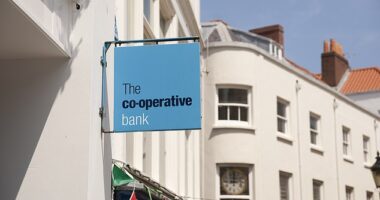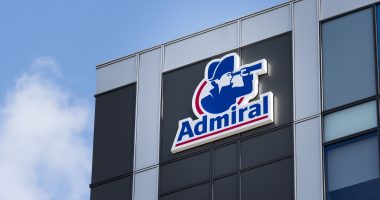LOCKDOWN rules for shops allow supermarkets to stay open in England so everyone can get hold of essential items like food and toiletries.
With many supermarkets these days selling much more than groceries, from clothes and books to kettles and bed sheets, it’s left some shoppers wondering what they can and can’t buy.
⚠️ Read our coronavirus live blog for the latest news & updates
And in Wales supermarkets were forced to cover up these kinds of non-essential items when the country entered lockdown in October.
The new rules for the second coronavirus lockdown in England don’t go this far, but there may be parts of stores that you can’t shop in.
Here, we talk you through the rules and how they apply to supermarkets and other types of shops selling essential and non-essential items.
Can supermarkets sell non-essential items?
The government has issued fresh guidance on what’s called “mixed retail” – that’s where a shop is selling different types of items.
It says that aisles in supermarkets where non-essential items are available will not be closed or blocked off.
But where there is a more substantial standalone business within a supermarket, this should close.
The government guidance says: “A business selling a significant amount of essential retail may also continue to sell goods typically sold at non-essential retail.”
And it offers an example that a supermarket that sells food is not required to close off or cordon off aisles selling homeware.
What stores must CLOSE during England’s second lockdown?
THESE are the businesses that have to close until December 2:
- Restaurants
- Pubs
- Bars
- Non-essential shops, including electronics and clothing stores
- Hairdressers and nail salons
- Gyms
- Vehicle showrooms
- Travel agents
- Betting shops
- Auction houses
- Tailors
- Car washes
- Tobacco and vape shops
- Indoor and outdoor leisure facilities, such as bowling alleys, leisure centres and gyms
- Swimming pools, golf courses and driving ranges
- Dance studios
- Stables and riding centres
- Soft play centres
- Climbing walls
- Archery and shooting ranges
- Water and theme parks
- Theatres and concert halls
- Cinemas
- Museums and galleries
- Bingo halls
- Adult gaming centres, casinos and arcades
- Zoos and other animal attractions
- Botanical gardens
- Tattoo and piercing parlours
- Spas
- Massage parlours
- Tanning salons
- Non-medical acupuncture
But where there is a concession, which is a standalone business within a store that is distinct from the main store and it’s selling non-essential items, that should close.
Here’s what the government guidance says: “Where a business selling essential retail has another, separate business embedded within it that is required to close, the embedded business must close.
It gives an example that an electronics business operating a concession within a supermarket must close, as would a bookshop business inside a garden centre.
It also says: “Where a business has sufficiently distinct parts, and one section provides essential retail and one section provides non-essential retail, the non-essential sections should close to limit interactions between customers and the opportunity for the disease to spread.
“Sufficiently distinct sections might involve operating in separate buildings, across separate floors, a door between sections, using separate cashiers, or another clear demarcation between sections.
It gives an example that a food shop may stay open, but a homeware section on a separate floor or separate building should close.
We’ve contacted Asda, Tesco and Sainsbury’s to see if standalone concessions for clothing or other other similar separate in-store businesses will close.
Asda has George Clothing, Tesco has F&F Clothing and Sainsbury’s has Tu.
Argos stores within Sainsbury’s will be closed except for click and collect services – it has to close under the rules but can let people pick up orders made online.
Sainsbury’s also has Habitat “mini stores” in some locations while Tesco has concessions of some Arcadia brands, which includes Topshop, Dorothy Perkins and Burton.
What about non-essential retailers which also sell food?
There are places like department stores which sell mainly items like clothes and homeware that are considered non-essential but also sell some food.
For instance John Lewis has Waitrose foodhalls in some of its stores and Selfridges also has a foodhall.
Under the guidance above, the food parts can remain open because they are selling essentials.
You can’t shop in any of the rest of the stores where non-essentials are sold because they are distinctly separate.
At John Lewis, you can pick up click and collect orders but not shop in store, apart from Waitrose foodhalls in Oxford Street and Bluewater.
Waitrose stores next to John Lewis in Kingston upon Thames, Basingstoke, Horsham and Ipswich remain open too.
At Selfridges, the foodhall of its flagship Oxford Street location is open.
At M&S, which is known for its food and clothes, the rules for England’s lockdown are as follows:
- Stores which sell food, clothing and home are open
- At these stores that are open, floors of the store which have only clothes will be closed, unless they are providing essential access
- Standalone food stores are open
- Clothing and home only stores are closed
- Outlet stores are closed
M&S told The Sun that you can buy clothes and other non-food items which are sold on the same floor as food.
Martin Lewis has rounded up seven different financial supports that are being extended during the second lockdown.
Which shops can remain open during second national lockdown? Here’s the full list of essential shops.
You can head to a bank branch if you really need to in the second lockdown – but accessing services online or over the phone is probably an easier option.
















